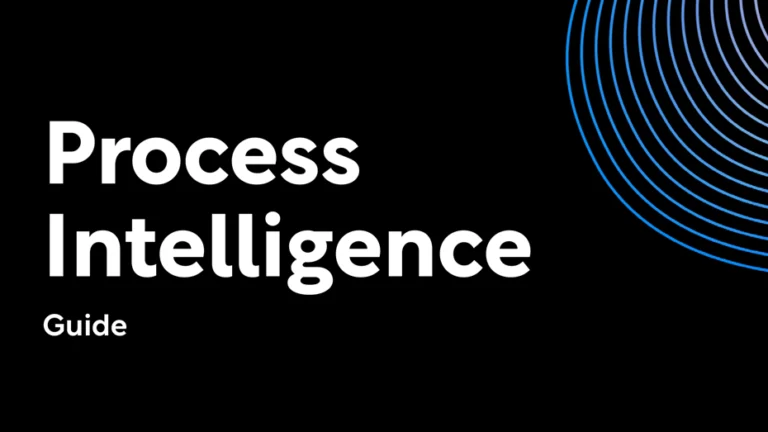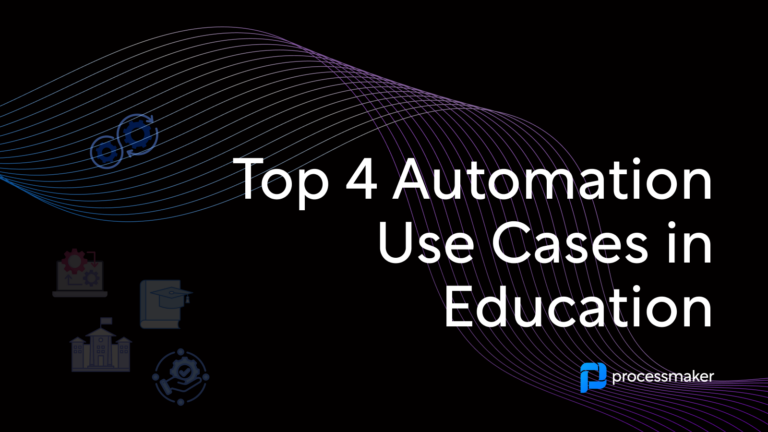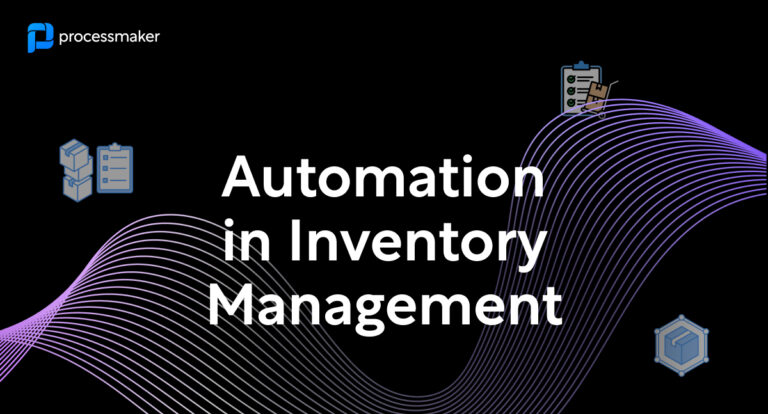The digital gap is widening in higher education.
As thousands of institutions adjust to remote instruction, the need for robust and intelligent technology is more than a nice-to-have, it’s an imperative.
But the value of digital transformation goes beyond hosting impromptu online courses.
Institutions that have already embraced digital process automation leverage technology to achieve what Gartner describes as the four key goals of digital transformation: enhanced competitiveness, higher profitability, better customer experience, and greater agility across the enterprise.
For institutions that haven’t gone digital, this article will explore how digital transformation can help them to do the same.
Enhanced competitiveness
The number of four-year colleges in the United States has grown more than 40 percent since 1980. From online universities to niche specialty schools, each successive generation of students has more options to choose from when considering where to pursue an education.
This market expansion creates challenges for some traditional institutions. As the world becomes increasingly digital, prospective students expect universities to provide them with the same level of convenience they enjoy in other areas of their lives.
The Economist found that failure to innovate makes educational institutions stuck in the technological past less competitive—and the growing enrollment in online degree programs is a prime example of this shift.
To remain competitive in a digital world, forward-thinking institutions must keep pace with technology to meet evolving student demands.
To pull it off, they must embrace digital transformation—not as a quick series of changes, but as a holistic approach to upgrading operations in a way that redefines how they deliver value.
With an intelligent business process management system (iBPMs), universities can create sustainable online models that attract and engage students on their preferred channels.
Higher profitability
Whether an institution is public, private, non-profit, or for-profit, its ability to generate revenue impacts how it can invest money—from student recruitment efforts to curriculum development.
This is also why many universities delay digital transformation. With limited budgets and competing interests, some institutions see true digital transformation as too costly to take on.
In truth, digital transformation is a long-term investment. It’s the surest way for educational institutions to ensure sustainable profitability in an increasingly competitive space.
With a business process management (BPM) system in place, universities can:
- Eradicate manual and paper-based processes, reducing the potential for human error and involvement
- Manage large amounts of data-driven processes protected by regulations (i.e. maintain compliance)
- Connect third-party systems (learning management, document management, and digital signature tools) to gain robust, holistic insights
- Monitor progress towards KPIs with custom notifications
When combined, the benefits of digital transformation enable universities to operate efficiently and at scale, reducing operation costs in the process.
Better customer experience
Improving the customer experience is a top priority for organizations across industries. Those that can identify and optimize every touchpoint along the customer journey build loyalty, earn brand ambassadors, and increase revenue.
Educational institutions see similar results. Colleges and universities that prioritize the student experience can produce better learning outcomes, increased retention and graduation rates, better employment rates, and higher starting salaries.
But before any school can achieve these benefits, it must invest in the technology needed to put students first.
With intelligent business process management software (iBPMs), higher education institutions can completely overhaul their processes to improve the student experience.
From department-specific workflows that help expedite student requests, to integrated systems that enable students to help themselves, digital transformation arms institutions with the data and infrastructure to better meet student needs at scale.
The benefits of digital transformation also extend to educators and administrators. With significantly less time spent on manual workflows and separate systems, university staff can focus more on high-level tasks and less on low-value ones.
Greater agility across the enterprise
A university functions a lot like an enterprise. Both have complex hierarchies and both contend with supporting interactions between multiple people and departments—internally and externally.
This level of complexity can make a seemingly simple task—like submitting a form—become a drawn-out process involving several steps and stakeholders.
To eliminate the inefficiencies that arise from paper-based processes, a growing number of institutions are taking a cue from enterprise organizations by digitizing critical workflows.
This affords them a few benefits. The digitization of forms, signatures, and document generation removes the need to meet face-to-face or bounce between siloed systems. With the right digital workflows in place, universities can:
- Move documents across campus electronically
- Auto-populate form fields by extracting information from a database
- Enable electronic signatures
- Access various resources from one central platform that integrates with third-party systems
With a low-code BPM solution, intuitive drag-and-drop interfaces empower non-technical staff to devise scalable solutions based on their institution’s use case. When taken together, these universities are able to deploy solutions that help them become faster and more cost-effective—no matter what’s thrown their way.





